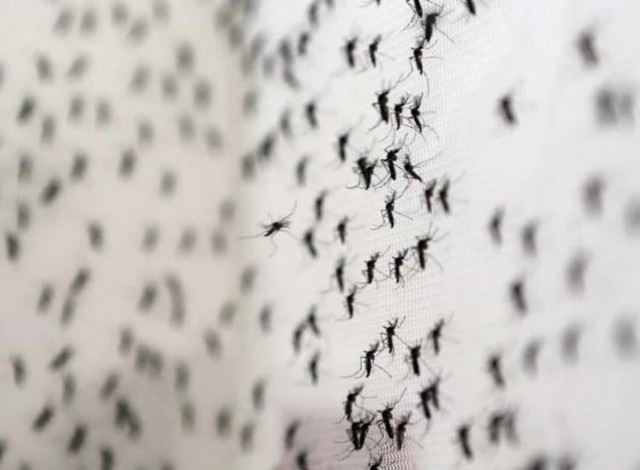Research indicates other mosquitoes may be able to carry Zika
The development could further complicate efforts to limit Zika virus spread

Aedes aegypti mosquitoes are seen inside Oxitec laboratory in Campinas, Brazil, February 2, 2016. Picture taken February 2, 2016.
PHOTO: REUTERS
The mosquito species Aedes aegypti has been identified as the primary transmitter of Zika infections, which have been linked to thousands of birth defects as the virus spreads rapidly in Brazil and other countries in Latin America and the Caribbean.
But the scientists in Brazil announced on Wednesday that they were able to infect another species, Culex quinquefasciatus, with the virus in a laboratory, raising concerns that Zika could be carried by a species more prevalent than Aedes aegypti. They said much more research is needed to learn whether the Culex mosquitoes can transmit Zika infections.
Health dept collaborates with NGO to combat dengue
In Brazil, Culex quinquefasciatus is 20 times more common than Aedes aegypti, the researchers said.
The research, conducted by scientists at the government-funded Oswaldo Cruz Foundation in the northeastern city of Recife, is part of an ongoing trial in which researchers injected 200 of the Culex quinquefasciatus mosquitoes with rabbit blood infected by Zika.
The virus, they said, circulated through the mosquitoes' bodies and into their salivary glands, meaning they might be able to transmit a Zika infection by biting a person.
"We saw an ease of infection and an ease of dissemination of the virus to the salivary glands," Constancia Ayres, the lead scientist in the study, told Globo, Brazil's leading television network.
‘Dengue mosquito’s presence can lead to Zika virus outbreak’
The research has yet to be published in a scientific journal or reviewed by scientific peers elsewhere.
The foundation said more work was needed to determine whether Culex mosquitoes in the wild already are carrying the virus as well as whether they can transmit Zika infections.
Foundation spokeswoman Fabiola Tavares on Thursday said the researchers, who will begin capturing Culex mosquitoes in areas near Recife where the virus is known to be circulating, will now proceed toward answering those questions. The additional research could take up to eight months, Tavares added.



















COMMENTS
Comments are moderated and generally will be posted if they are on-topic and not abusive.
For more information, please see our Comments FAQ